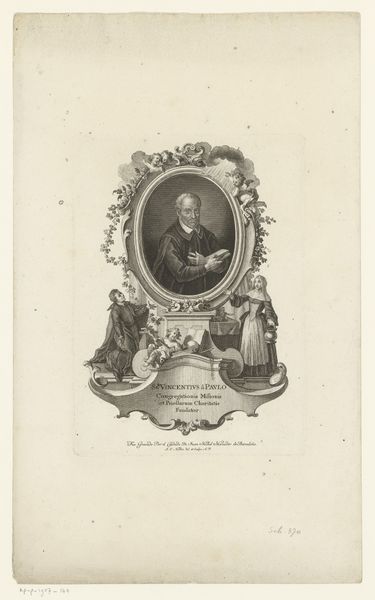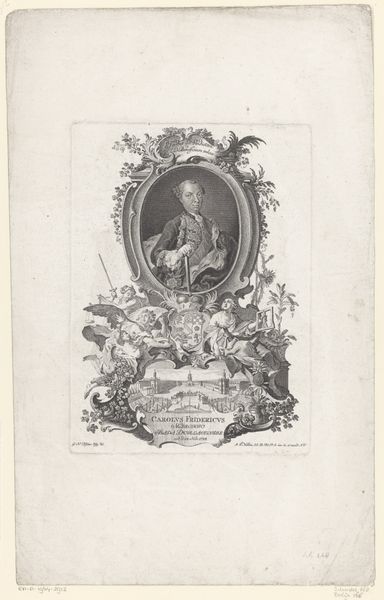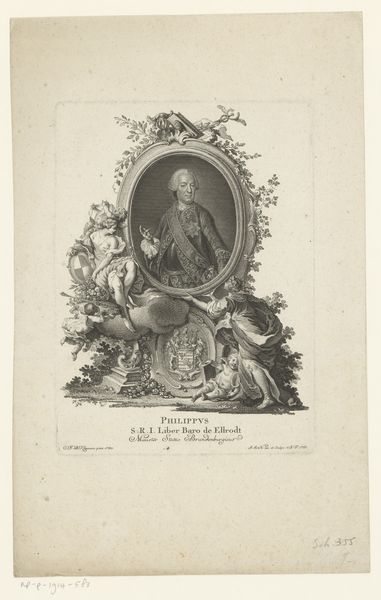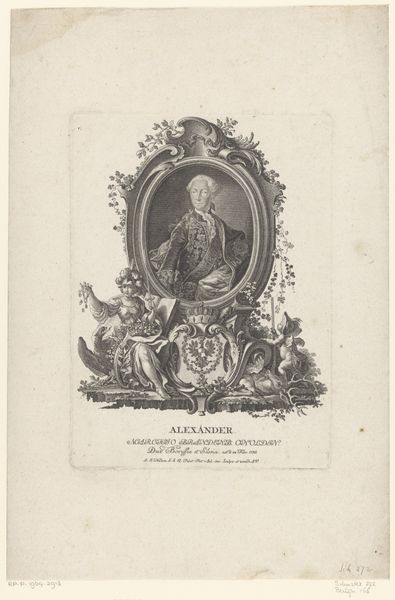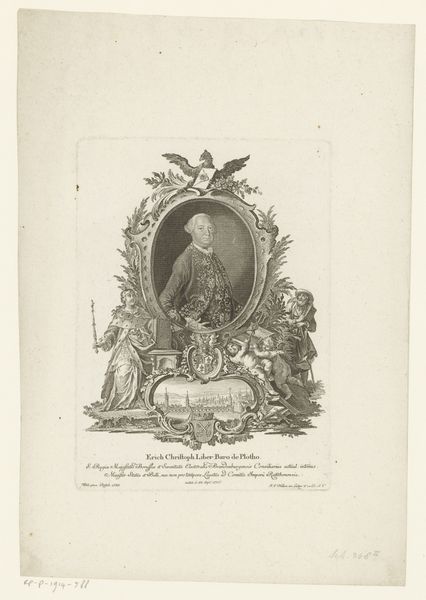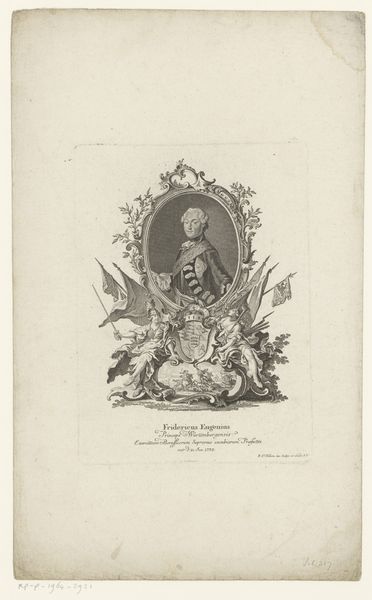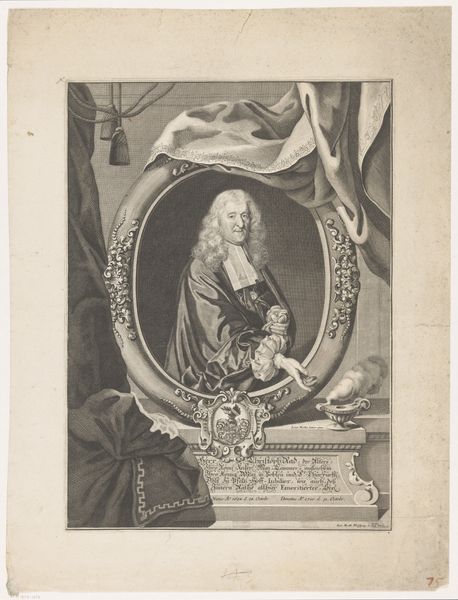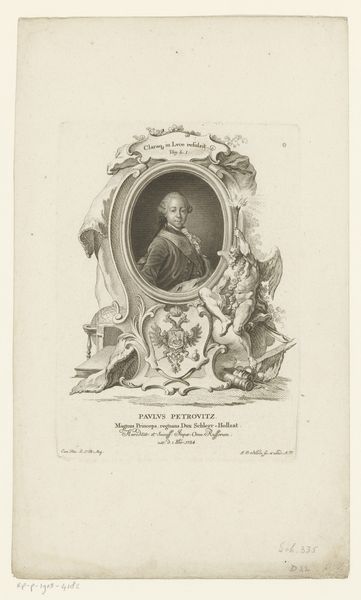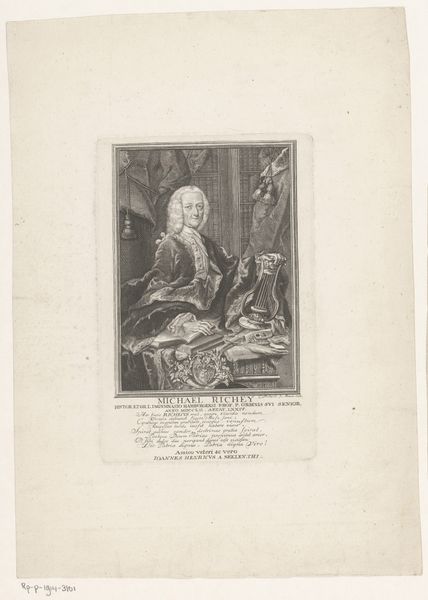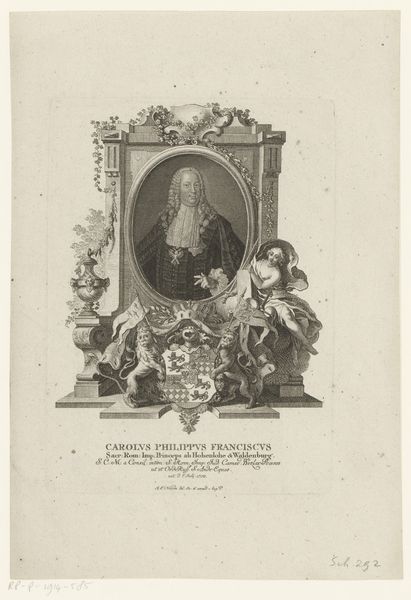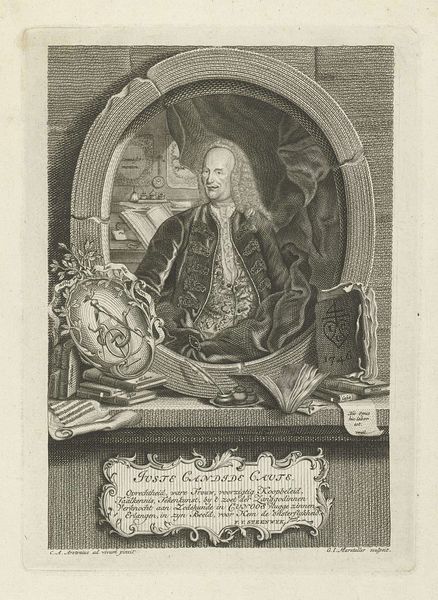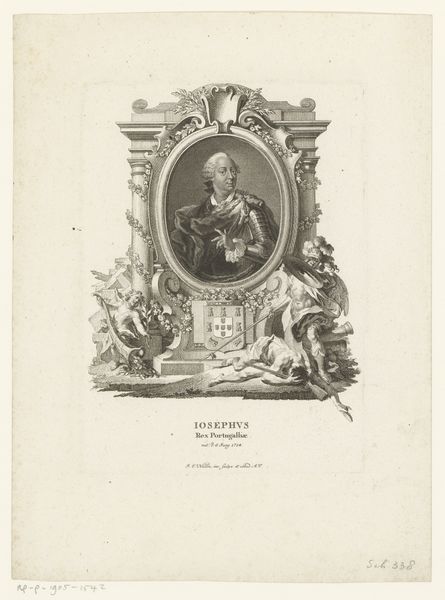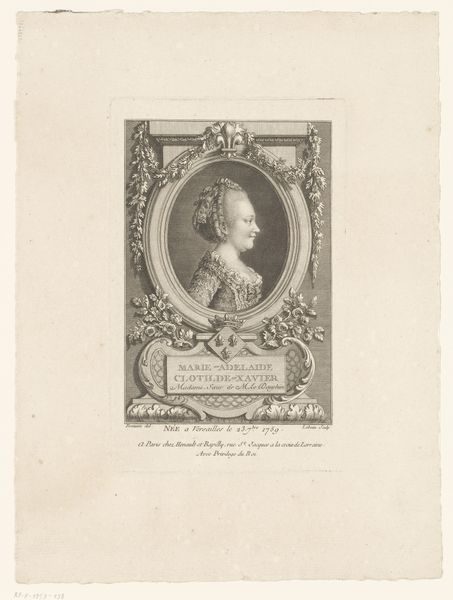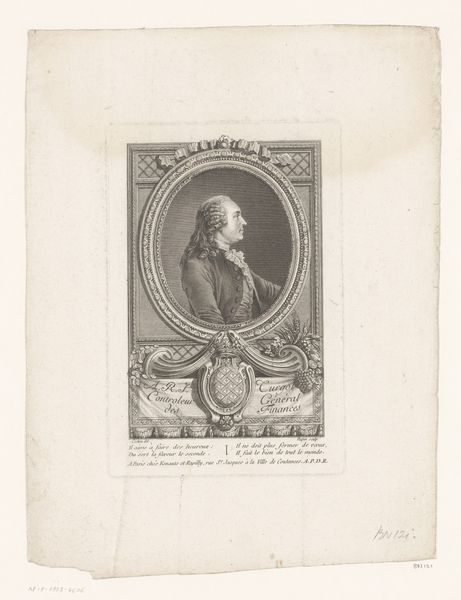
Dimensions: height 182 mm, width 116 mm
Copyright: Rijks Museum: Open Domain
Editor: Here we have "Portrait of Louise Marie of France," an engraving made sometime between 1770 and 1806, attributed to Pierre Adrien Le Beau. It’s remarkably detailed, especially considering it’s an engraving. The subject has such a serene look. How would you interpret this work? Curator: Ah, yes, Louise Marie, Louis XV’s youngest daughter. It’s quite beautiful, isn't it? This isn’t just a portrait; it's a carefully constructed image meant to convey something more. Notice the oval frame, wreathed in flora – a classic Baroque flourish, attempting to convey a timeless quality and beauty. The nun’s habit is quite simple. Do you get any feelings of why she's presented like this? Editor: Well, the book, the crucifix, it all speaks to her piety, doesn’t it? Almost an idealized version of her religious devotion. Curator: Precisely! She entered a Carmelite convent later in life, which was a radical choice for a royal. The symbols underscore that. The radiant face above is almost angelic. This portrait is less about likeness and more about creating an image of spiritual transcendence, and less of royal connections. Editor: It’s fascinating how much information is packed into a single image, from her personal choice to her family's history! Curator: Indeed. And consider the power of engraving! It made images like these accessible to a wider audience, shaping public perception. It's more than a portrait; it is visual propaganda, designed to solidify her legacy. Editor: That's given me a whole new appreciation for this piece. It's a blend of personal choice and political messaging, carefully etched into a plate. Thanks for pointing out these historical aspects! Curator: My pleasure! Art whispers secrets if you lend an ear and look into the contexts where art takes form.
Comments
No comments
Be the first to comment and join the conversation on the ultimate creative platform.
